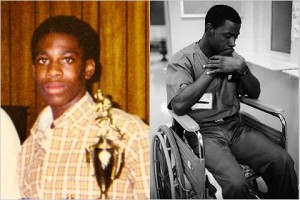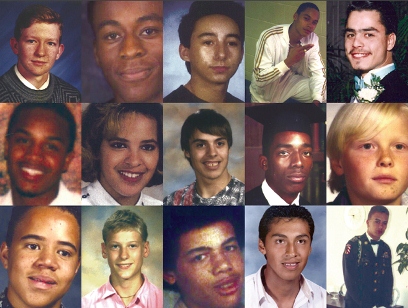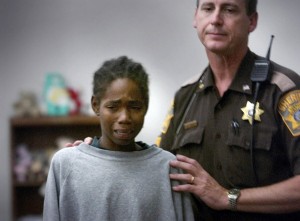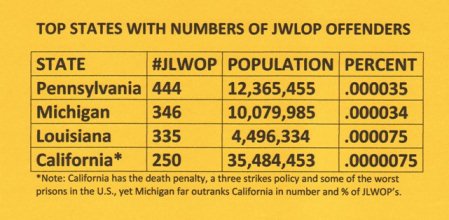by Efren Paredes, Jr.
June 25, 2012
Today the U.S. Supreme Court issued an opinion abolishing life without parole (LWOP) sentences for the 2,500 prisoners across the U.S. who were condemned to die in prison for crimes they were convicted of as juveniles.
Courts will now have discretion to impose a lesser sentence in those cases and consider age as a factor in sentencing. Juveniles can receive LWOP sentences, however, it is a discretionary sentence now, not a mandatory sentence in cases involving homicide. Prisoners already serving LWOP sentences for crimes they were convicted of as juveniles are now eligible for resentencing. How that process occurs will vary by state.
The court conveyed what any parent, educator and common sense can tell us: children are different than adults. They possess the unique capacity for change and growth because they are still cognitively developing, and should be provided a path for rehabilitation during their incarceration.
Children are not incorrigible or expendable, nor are they miniature adults. They are not transformed into adults because they make mistakes or bad choices no more than they are transformed into adults for positive achievements or making good decisions.
It is undisputed that young people must be held accountable for their actions. This accountability, however, can only be achieved in ways that reflect the young person’s age and his/her capacity for change. Just as the punishment should fit the crime, the punishment should also fit the offender.
In Michigan, 73% of the prisoners serving LWOP sentences for crimes they were convicted of committing when they were juveniles are people of color, yet they comprise only 27% of the youth in the state.
Nearly half of those convicted are also first-time offenders. Most grew up in impoverished areas, were victims of abuse, and were regularly exposed to drugs and violence.
The International Journal of Forensic Mental Health reports that 2/3 of males and 3/4 of females in the juvenile justice system show signs of one or more psychiatric disorders.
Taken together these findings reflect a very vulnerable demographic of 200,000 to 250,000 juveniles annually transferred to adult courts that are disparately being subjected to the harshest sentences meted out by judges.

- Juvenile lifers Terrance Graham, 14 at time of crime, in prison since 2002; Joe Sullivan, 13 at time of crime, in prison since 1989.
Sadly, the vast majority of these juveniles are incapable of defending themselves against the political gamesmanship and cascade of abuses and mistreatment they are subjected to by older, experienced professionals in the criminal justice system.
It is a moral imperative that we now amplify the national conversation about the draconian policy of sentencing juveniles in adult courts. Rather than abandon and demonize young people, citizens should urge legislators to reform sentencing guidelines and work to ensure fairness in the parole process.
Life sentences in any form are veritable death sentences in Michigan. As long as they remain sentencing options for juveniles their opportunity for serious parole consideration will remain unattainable reality.
(Efren Paredes, Jr. is a Michigan prisoner sentenced to LWOP as a juvenile in 1989. Learn more about Efren at www.4Efren.com)









Hi yes I think this is not right they are kids they don’t know better there minds are still growing, they need to end life with out off parole for juvenile until they age of 22 year I think that’s when we start being adults and realize our mistakes., and bad choices., and put more education out gro them and and a church and they will be better persons for our society.,
I think life without parole is a problem because the teens who convict the crimes are not well established. and yeah i understand that some of them do deserve the punishment because they did convict a horrible crime.But i think the government is being to harsh to the teens who do convict the crimes cause they are under 18 and dont know any better and yeah some of them were abused or torture and or wore brained washed but yeah i see your point of view and i guess some of that is true